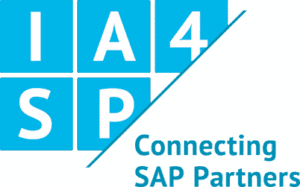Introduction
This documentation is divided into 2 parts:
- Part 1 describes the actual update of the containers and comes in two options
- Option 1 in case you use our recommended docker compose setup.
- Option 2 in case you have a custom setup. It describes the relevant changes that come with Simplifier 10 in a generic way.
- Part 2 describes steps which have to be done independently of the container orchestration mode.
Part 1: Upgrading Simplifier
Option 1: Upgrade using default docker compose
Step 1 – Shutdown Simplifier Instance
Go to the directory where you placed the docker-compose file. Switch into that folder:
cd docker-compose
To stop Simplifier, run
docker compose down
Step 2 – Get Simplifier setup files
Update the content and switch to the new release branch:
git pull git checkout --track origin/release/LTS
Step 3 Update .env
There weren’t any additions or removals with this release. You can update the line
to
SIMPLIFIER_VERSION=10
and leave the rest unchanged.
Optional: a list of all env variables with a short description. Change these as needed.
|
SIMPLIFIER_HOSTNAME
|
Simplifier Hostname, FQDN, without protocoll. To access Simplifer, https://${SIMPLIFIER_HOSTNAME} needs to be used |
| INITIAL_ADMIN_PASSWORD | Initial password for user admin. If the admin account exists and its password has never been changed, the environment variable INITIAL_ADMIN_PASSWORD needs to be set, otherwise Simplifier will stop the boot process and log a message mentioning the variable. The variable is ignored, if the password for admin has been changed (even if it has been changed back to the default value) |
|
DB_PASSWORD
|
MySQL Database Password |
|
DB_ROOT_PASSWORD
|
Password for the MySQL root user |
|
DB_NAME
|
Database name for the Simplifier database. Used as prefix for all plugin/module databases. |
|
SIMPLIFIER_VERSION
|
Version of Simplifier you want to install. You should not change this. If you want to have another Simplifier version, please check out the appropriate branch instead |
|
HOST_DATA_PATH
|
Path were all data is stored in the host. |
|
INSTANCE_PREFIX
|
Prefix for all containers. Should resemble the instance type of this environment. Typical values are: dev, qa, prod |
|
PUBLIC_PORT_HTTP
|
Public port for HTTP route. Default 80. |
|
PUBLIC_PORT_HTTPS
|
Public port for HTTPS route. Default 443. |
|
PLUGINLIST
|
List of all plugins which should be started. Technically, the Workflow Engine is not a plugin, so it is not mentioned here |
|
SIMPLIFIER_JVM_HEAP_GB
|
How much heap space for Simplier App Server in GB |
|
TZ
|
Timezone. Only used in Workflow Context |
|
WF_RT_JVM_HEAP_GB
|
How much heap space for Workflow Runtime in GB |
|
WF_ARCHIVE_TIME
|
At which time should the Workflow Archive Job run? Format: hh:mm |
|
WF_ARCHIVE_INTERVAL
|
Deprecated. Don’t use this. |
|
WF_ARCHIVE_MAX_AGE_COMPLETED
|
Deprecated. Don’t use this. |
|
WF_DT_JVM_HEAP_GB
|
How much heap space for Workflow Designtime in GB |
|
LAUNCHPAD_JVM_HEAP_GB
|
How much heap space for Launchpad in GB |
|
DEBUG_CHROME_DEV_TOOLS_EXPOSED_PORT
|
Port used to connect to the debugger. This port needs to be open in your firewall setup. (Read more) |
|
PDFPLUGIN_SECURITY_ALLOW_JAVASCRIPT
|
Should Javascript execution be allowed in PDF templates? (Read more) |
|
TRACKING_BEHAVIOR
|
Default: consent – each user is asked for consent. on – tracking is activated without asking for consent. off – tracking is disabled |
Step 4
Pull new images
docker compose pull
Start Simplifier
docker compose up -d
Option 2: Generic upgrade instructions, if you are not using our default docker compose setup
To upgrade to Simplifier 10, shut down Simplifer and change the container image name from
simplifierag/simplifier:2508 simplifierag/launchpad:2508 simplifierag/workflow-designtime:2508 simplifierag/workflow-runtime:2508
to
simplifierag/simplifier:10 simplifierag/launchpad:10 simplifierag/workflow-designtime:10 simplifierag/workflow-runtime:10
Part 2: Doings after upgrade
Step 1: Update Simplifier Standard Content
Download the latest Standard Content from Marketplace and import it to your Simplifier Instance. Make sure using import scenarios ‘Overwrite all’ or ‘Skip unchanged’ (recommended).
Step 2: Release Notes and Migration Notes
Follow our Release Notes and Migration Notes and implement the necessary changes.











